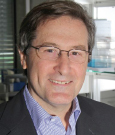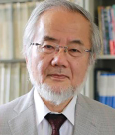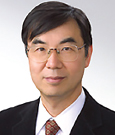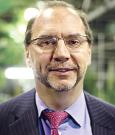The Gairdner Foundation named the winners of the 2015 Canada Gairdner Awards, recognizing some of the most significant medical discoveries around the world. The awards provide a $100,000 (CAD) prize to each scientist for his or her work. The aim of the Gairdner Awards is to promote a culture of research and innovation, inspiring the next generation of researchers.
The five recipients of the 2015 Canada Gairdner Awards are:
Lewis C. Cantley, PhD, Director, Sandra and Edward Meyer Cancer Center at Weill Cornell Medical College and NewYork-Presbyterian Hospital, Margaret and Herman Sokol Professor in Oncology Research, and Professor of Cancer Biology in Medicine at Weill Cornell Medical College.
Dr. Cantley was awarded “for his discovery of PI 3-kinase, a critical component of the cell signaling machinery that plays a key role in normal functions of proliferations and growth and is deregulated in diseases such as cancer or diabetes.”
Michael N. Hall, PhD, Professor, Biozentrum, University of Basel.
Dr. Hall was awarded “for his discovery of the nutrient activated protein kinase TOR and elucidation of its central control of cell growth, critical to development and aging and widely implicated in cancers, diabetes, cardiovascular and immune diseases.” Dr. Hall discovered and named the protein “target of rapamycin” (TOR) and found a protein in cellular communication that, when blocked, can contain the uncontrolled cell growth and division seen in cancer.
Lynne E. Maquat, PhD, Director of the Center for RNA Biology and Professor of Biochemistry and Biophysics at the University of Rochester School of Medicine and Dentistry, J. Lowell Orbison Endowed Chair.
Dr. Maquat was awarded “for her discovery of the mechanism that destroys mutant messenger RNAs in human cells, nonsense-mediated mRNA decay, which is critically important in both normal and disease states.” Nonsense-mediated mRNA is a quality control mechanism that removes flawed messenger RNA molecules that, if left intact, would lead to the production of abnormal proteins that could be toxic to cells and initiate disease.
Yoshinori Ohsumi, DSci, Honorary Professor, Frontier Research Center, Tokyo Institute of Technology.
Dr. Ohsumi was awarded “for pioneering the molecular elucidation of autophagy, an essential intracellular, degradation system and when disordered, is linked to many diseases including neurodegeneration, cancer, and infection.” Dr. Ohsumi is the first researcher to visually observe the function of autophagy (self-eating), in which cells clean up the “garbage” within them by killing invaders and preserving healthy cells.
Shimon Sakaguchi, MD, PhD, Distinguished Professor, Vice Director, Laboratory of Experimental Immunology, WPI Immunology Frontier Research Center, Osaka University.
Dr. Sakaguchi was awarded “for his discovery of regulatory T cells, characterization of their role in immunity and application to the treatment of autoimmune diseases and cancer.” In his laboratory, Dr. Sakaguchi demonstrated that increasing the number of Treg cells can prevent and treat autoimmune diseases. Further, Treg cells suppress the immune system against cancer.
The Canada Gairdner Global Health Award, recognizing a researcher responsible for a scientific advancement that has made a significant impact on health in the developing world, goes to:
Peter Piot, MD, PhD, FRCP, FMedSci, Director of the London School of Hygiene & Tropical Medicine, Professor of Global Health.
Dr. Piot was awarded “for his co-discovery of the Ebola virus, his many contributions to HIV/AIDS research, and his extraordinary leadership in the global response to the HIV/AIDS epidemic, especially in Africa.”
The Canada Gairdner Wrightman Award, given to a Canadian who has demonstrated outstanding leadership in medicine and medical science throughout his/her career, is awarded to:
Janet Rossant, PhD, FRS, FRSC, Chief of Research, The Hospital for Sick Children (SickKids).
Awarded “for her outstanding scientific contributions to developmental biology and for her exceptional international leadership in stem cell biology and policy-making, and in advancing research programs for children’s illnesses.” Her research interests focus on understanding the genetic control of normal and abnormal development in the mouse embryo and its impact on human development and disease. By understanding the underpinning of early development in the mouse embryo, she has contributed to the understanding of human embryo development and stem cell origins.
Her interests in the early embryo led to the discovery in 1998 of a novel placental stem cell type, the trophoblast stem cell. Further, her research on the genes controlling blood vessel development has defined novel pathways for new drug interventions in cancer. Throughout her career, Dr. Rossant has been a pioneer and innovator of new techniques to manipulate the mouse genome, enabling the mouse to become the pre-eminent model for understanding the function of the human genome sequence. ■








